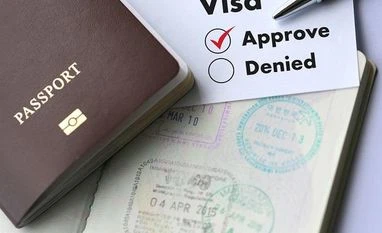Employers who rely on seasonal foreign-worker permits are renewing their fight to lift limits on temporary H-2B visas, saying computer problems this year that thwarted many applications highlighted the need to raise the cap.
The Labor Department website used by U.S. businesses to apply for this spring’s round of H-2B visas crashed after a scramble by employers chasing 33,000 available permits.
The Jan. 1 system meltdown, in the moments thousands of employers were applying for their permits, stemmed from high demand and a move to make the process first-come, first-served.
While the Labor Department said Tuesday it would switch to a randomized process for employers who applied within the first three days for the next round of fall visas, businesses say the administration’s response for the current round has been: tough luck.
The administration said Friday that all 33,000 permits have now been claimed. But the initial problem with the computer system, the switch to first-come first-serve and subsequent system problems—with some unable to access the servers—left many applicants feeling the process was unfair.
Industries ranging from tourism to agriculture to landscaping to amusements say they are reliant on foreign workers and the H-2B program. They apply for the permits through a system known as ICERT.
A coalition representing the industries hopes to use the problems suffered by some sectors as an argument to increase the cap for all of them.
“The ICERT disruption that occurred at the beginning of this year will play a factor in the grievances that people are listing when they ask DHS to give them more cap relief,” said Jon Baselice, director of immigration policy for the U.S. Chamber of Commerce.
While the number of H-2B worker visas is capped by law at 33,000 semiannually, Congress can allow up to 69,000 additional visas to be made available —if the administration agrees.
The border-security spending package passed this month includes a congressional authorization for the administration to issue extra visas, setting the stage for new pressure on the Department of Homeland Security to sign off on an increase in legal workers, in consultation with Labor.
Labor Secretary Alex Acosta has said he supports extending the cap by around 15,000 for the spring-application period.
Supporters of legal immigration restrictions say that business owners should learn lessons from the computer crash and do more to offer work to unemployed Americans.
“H-2B employers have been calling for an increase in the cap forever,” said Eric Ruark, director of research for Numbers USA. “Just because you had a glitch in the system doesn’t equate to a need for an increase in the cap. You need to ask the question: ‘Is there a shortage of workers?’ And there isn’t.”
Some of those businesses say their experience differs. “We hire everybody who comes through the door with a pulse and a driver’s license,” said B.J. Brownlee, owner of Archway Lawn Care in St. Peters, Mo., near St, Louis.
Mr. Brownlee said that after he advertised jobs paying $14.52 to $18 an hour, he had scheduled 26 interviews with local applicants. Three turned up, two of whom had felony convictions for assault and theft, respectively. “We hired the third guy.”
“I wouldn’t spend the money that I’m spending on the program if we could hire Americans,” said Mr. Brownlee, who didn’t get approved for visas before the cap hit this year and says he has six out of 37 positions filled.
The spring-application period opened at midnight Jan.1, and the Labor Department said just 18 applicants managed to access ICERT that day and file their paperwork, meaning thousands were blocked out.
Others say they stayed up until 3 a.m., staring at multiple computer screens while their spouses and children celebrated the New Year nearby.
Some 60 who filed paper applications got ahead of the pack—a gamble that paid off because the department ended up taking a week to restore access and even that after adding servers and restarting the process Jan. 7 faced further problems.
Some businesses hire agents who often work for multiple employers from a similar sector, and the computer issues kept some of them from filing within minutes of the opening as they usually do. The result is some sectors may feel a disproportionate impact from the computer problems.
James Judkins, a former fire-eater, ringmaster and circus manager who serves as an immigration agent for a swath of the amusement industry, said all his clients were pushed to the back of the line when he was unable to access the server. He said he didn’t get a single petition through certification by the time the cap hit Feb. 19.
“There are a little bit over a hundred carnivals, circuses and mobile food concession operators that work the fairs and festivals that will not be able to obtain H-2B workers this year,” Mr. Judkins said. “In the northern half of the United States, if they have a local fair, they have issues.”
Deborah Powers, a North Carolina carnival owner, said she was unable to submit her visa applications as a result of the computer problems this year. Unless the cap is lifted and she gets her workers, she said she would struggle to fulfill contracts with more than 20 East Coast fairs and festivals this spring and might have to shut down after more than 40 years.
“Many fairs would have to attempt to run their businesses without amusement rides,” she said.
Unlock 30+ premium stories daily hand-picked by our editors, across devices on browser and app.
Pick your 5 favourite companies, get a daily email with all news updates on them.
Full access to our intuitive epaper - clip, save, share articles from any device; newspaper archives from 2006.
Preferential invites to Business Standard events.
Curated newsletters on markets, personal finance, policy & politics, start-ups, technology, and more.
)